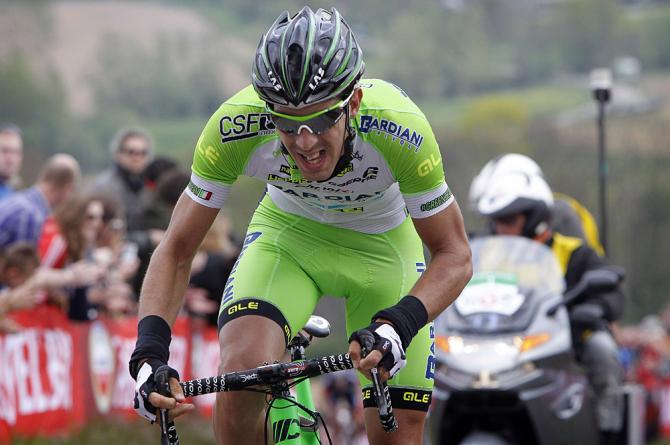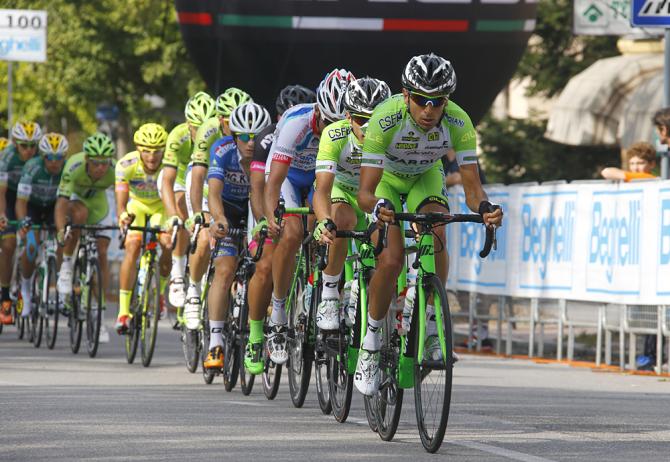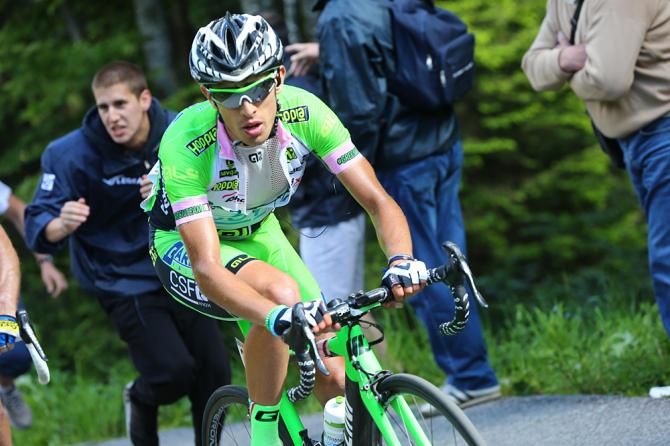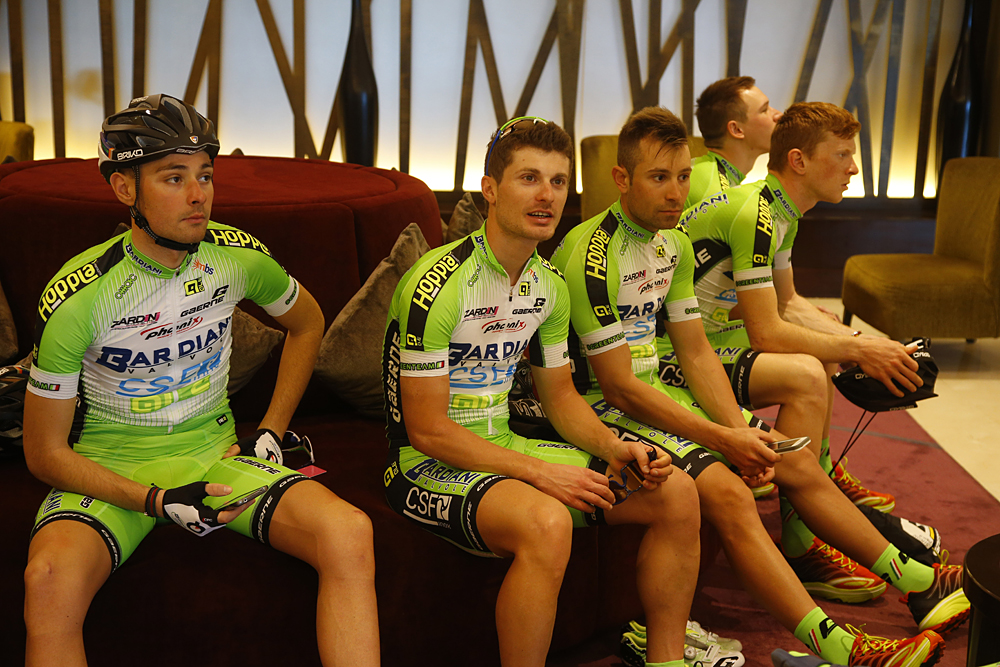Bardiani-CSF ignore MPCC cortisol regulations at Giro d’Italia
Italian team risk expulsion after allowing rider with low cortisol to compete




The Bardiani-CSF team risks expulsion from the Mouvement Pour un Cyclisme Credible (MPCC) after allowing a rider to start the Giro d'Italia despite pre-race tests showing an abnormally low cortisol level.
The name of the rider with a low cortisol level has not been revealed and the Italian team has insisted it has done nothing wrong. On Tuesday Nicola Boem won stage 10 of the Giro d'Italia for Bardiani-CSF, close to the team's headquarters in Emilia Romagna.
During the same cortisol tests, carried out by the UCI the Thursday before the Giro d’Italia began in San Remo on Saturday May 9, Kiwi rider George Bennett (LottoNL-Jumbo) was also found to have a low cortisol level and was pulled from the race by his team. Chris Horner was notably removed from Lampre-Merida's Vuelta a España team last season for the same reason, despite being the defending champion.
The MPCC is an organisation made up of cycling teams, race organisers, cycling federations and sponsors. Its aim is "to defend the idea of a clean cycling based on notions of transparency, responsibility and mobilization of its members."
French newspaper L'Equipe broke the news about the Bardiani-CSF on Wednesday morning and the MPCC moved quickly, issuing a statement. "The MPCC expressly points out that on Friday, May 9, the movement was informed by team BARDIANI-CSF that one of its riders showed an abnormally low cortisol level," the statement read.
"As of this Friday prior to the start of the Giro d'Italia, MPCC has formally requested to the team BARDIANI-CSF - through its president - not to enter this rider into the race and to prescribe eight days off-race as from the date the sample was taken by the UCI, in accordance with article 9 of MPCC regulations and its annex.
"MPCC considered that the explanations provided by the team BARDIANI-CSF were not sufficient to keep the rider in the race and immediately invited the team manager to attend the board of directors scheduled on June 8th in Lyon, in order to provide further explanation and allow the board to review this case."
Get The Leadout Newsletter
The latest race content, interviews, features, reviews and expert buying guides, direct to your inbox!
Low cortisol levels can be indicative of the use of cortisone or due to other health issues. UCI rules allow riders to race despite low levels but MPCC rules call for a minimum eight-day rest period or until cortisol levels return to normal.
The Bardiani-CSF team claimed it has not done anything wrong because the rider’s cortisol levels had returned to what it calls 'normal levels' in further tests carried out by the Italian team on Saturday morning, just a few hours before the opening team time trial stage.
"The rider in question started the Giro with perfectly normal levels that were in order for the UCI and the race organiser," Roberto Reverberi, the senior directeur sportif of the Italian team told Tuttobiciweb.
"For the MPCC, that based its decision on the controls only done on the Thursday before the start, he should have rested for eight days before returning to competition. But on Saturday of the team time trial we did a new control and all the values were okay. We immediately informed the MPCC and we're ready to supply further clarification at the meeting in June."
Bardiani-CSF could risk expulsion from the MPCC for ignoring indications from the voluntary association of teams, race organisers and sponsors.
In its statement, the MPCC said: "On October 20, 2014, all the team doctors reaffirmed the strict enforcement of the existing rules for health reasons. At this annual meeting, MPCC team doctors expressed unanimously their wish to increase the number of cortisol level tests. Since the beginning of the year a total of 263 cortisol level tests have been run on the professional peloton, either on the initiative of MPCC (128) or UCI (135 in the Giro)."
In March the Lampre-Merida team left the MPCC after deciding to ignore a rule that stops teams hiring riders that have served bans for doping. Diego Ulissi was banned for Salbutamol but the team backed the rider, claiming it had to respect his existing contract. It was ruled that Ulissi had only acted negligently by taking too much Salbutamol and not with the aim of improving his performance.
Last February the MPCC suspended the Neri Sottoli (now Southeast) team for failing to provide an acceptable explanation regarding Matteo Rabottini's positive test for EPO but also praised the Astana team for respecting its rules and self-suspending itself and missing the Tour of Beijing.

Stephen is one of the most experienced member of the Cyclingnews team, having reported on professional cycling since 1994. He has been Head of News at Cyclingnews since 2022, before which he held the position of European editor since 2012 and previously worked for Reuters, Shift Active Media, and CyclingWeekly, among other publications.